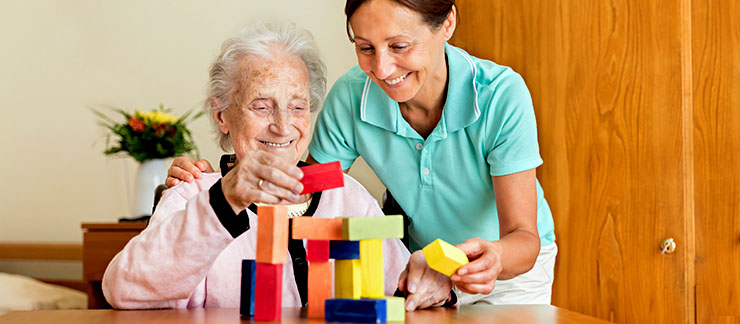Locating the Right Charlotte Care Home: An Overview to Choosing the most effective Environment
Locating the Right Charlotte Care Home: An Overview to Choosing the most effective Environment
Blog Article
Reliable Mental Deterioration Care Techniques for a Better Quality of Life
In the world of dementia treatment, the implementation of effective techniques is important for improving the quality of life for both people affected by the illness and their caregivers. Comprehending the distinct phases of mental deterioration enables for customized treatments that deal with the evolving requirements of clients-- from promoting cognitive engagement in the early phases to guaranteeing dignity in late-stage care.
Understanding Dementia Stages

In the very early stage, people might experience moderate amnesia and trouble with acquainted jobs. Treatment approaches ought to focus on maintaining self-reliance and providing cognitive excitement. The center phase is defined by increased complication, problem identifying enjoyed ones, and impaired judgment. During this stage, caregivers should implement structured routines and guarantee a safe setting. Finally, in the late stage, individuals might shed the capacity to call for and interact help with day-to-day tasks. Here, compassionate care is necessary, emphasizing comfort and self-respect.
Recognizing these phases allows caretakers to adapt their techniques and offer assistance that lines up with the person's current requirements, inevitably helping with far better management of the problem and improving the overall caregiving experience. Understanding dementia phases is therefore a foundational element of efficient dementia care.
Interaction Techniques
Reliable communication is a crucial element of mental deterioration treatment, especially as the illness progresses through its numerous stages. As cognitive capabilities decrease, it becomes vital to adjust interaction methods to fulfill the needs of people with dementia. Using clear, simple language is crucial; caregivers should stay clear of complex sentences and lingo, deciding instead for simple, concise expressions.
Non-verbal interaction plays an equally substantial duty. Faces, motions, and intonation can share heat and understanding, typically improving verbal messages. Preserving eye contact and an open posture cultivates a sense of link and safety, motivating people with mental deterioration to involve even more totally in discussions.
It is additionally beneficial to hold your horses and allow enough time for responses. People might call for extra time to procedure details and formulate their ideas. Repeating or putting in other words concerns might be necessary if understanding appears doing not have.
Lastly, concentrating on the individual's rate of interests and individual background can assist in more meaningful interactions. Taking part in acquainted topics can stimulate favorable memories and emotions, further enriching the interaction experience (memory care charlotte). By using these techniques, caretakers can considerably enhance the top quality of interactions, promoting dignity and respect for individuals living with dementia
Producing a Safe Setting
Creating a secure environment for people with dementia is vital to promoting their health and freedom. A properly designed room can considerably lower the threats of accidents and improve the high quality of life for those impacted by this condition. Trick considerations consist of lessening mess and making certain clear paths to promote flexibility. Eliminating or securing prospective risks, such as loosened carpets, sharp objects, or hazardous compounds, is vital in avoiding drops and injuries.
Illumination plays a critical role also; utilizing all-natural light wherever possible and integrating night lights can aid individuals browse their surroundings securely. Additionally, identifying spaces and essential objects can assist memory and orientation, decreasing confusion and anxiety.
It is also crucial to develop an acquainted setting by personalizing the room with pictures or valued products, which can stimulate positive memories and a sense of belonging.
Including furniture that is both comfortable and practical adds to an encouraging environment, permitting people to engage in daily activities effortlessly. Inevitably, a secure environment not only safeguards against physical risks yet additionally fosters a sense of safety, which is crucial for the psychological well-being of see post those dealing with dementia.
Involving Activities and Routines
Involving tasks and structured routines are crucial components in the care of people with dementia, as they promote cognitive feature, emotional stability, and social interaction. These tasks should be customized to the person's rate of interests, capacities, and phase of cognitive decline. charlotte care home. Straightforward, recurring jobs such as gardening, crafts and arts, or food preparation can offer significant interaction, allowing individuals to utilize their skills while promoting a sense of accomplishment
Establishing a day-to-day routine assists develop a predictable atmosphere, which can reduce anxiousness and complication. This structure can consist of assigned times for meals, activities, and rest, guaranteeing a well balanced method to day-to-day life. Integrating social interactions right into these regimens, such as group activities or seeing household, more enhances emotional well-being and battles sensations of isolation.
In addition, physical tasks, such as dancing or walking, not just advertise physical health yet likewise promote mental involvement. Urging engagement in neighborhood occasions or support system can provide extra opportunities for socializing. Overall, the integration of appealing tasks and organized routines is important in boosting the top quality of life for people with dementia, promoting independence and dignity while resolving their one-of-a-kind needs.
Sustaining Caretaker Well-Being
Looking after individuals with dementia can be a demanding and psychologically straining experience, making it necessary to focus on the health of caretakers. Caretakers typically deal with high levels of stress and anxiety, anxiety, and physical exhaustion, which can lead to fatigue otherwise attended to suitably. To sustain their health, it is important to implement a diverse method.
First, supplying caregivers with access to education and learning and sources can equip them with techniques to manage day-to-day obstacles. Support system, both in-person and online, supply a system for sharing experiences, promoting a feeling of community, and lowering feelings of seclusion. Furthermore, respite treatment services enable caretakers to take needed breaks, allowing them time to go to and recharge to their own wellness requirements.
Additionally, urging caregivers to take part in self-care methods-- such as regular workout, healthy eating, and mindfulness-- can substantially enhance their durability. Promoting open communication regarding their sensations and obstacles with family participants or professionals also assists minimize emotional concerns.
Final Thought
In verdict, reliable mental deterioration care techniques include a comprehensive understanding of the disease's phases, the implementation of clear communication techniques, that site the establishment of a safe setting, and the promo of interesting tasks and structured routines. Furthermore, prioritizing the health of caretakers is essential to sustaining high quality treatment. By incorporating these strategies, the general high quality of life for people with dementia can be dramatically enhanced, promoting a supportive environment that advertises dignity and emotional health.
In the realm of mental deterioration treatment, the execution of efficient techniques is vital for boosting the top quality of life for both people impacted by the disease and their caregivers. By using these techniques, caretakers can dramatically enhance the quality of communications, promoting self-respect and regard for people living with dementia.

Caring for individuals with mental deterioration can be a demanding and mentally taxing experience, making it important to focus on the health of caretakers.
Report this page